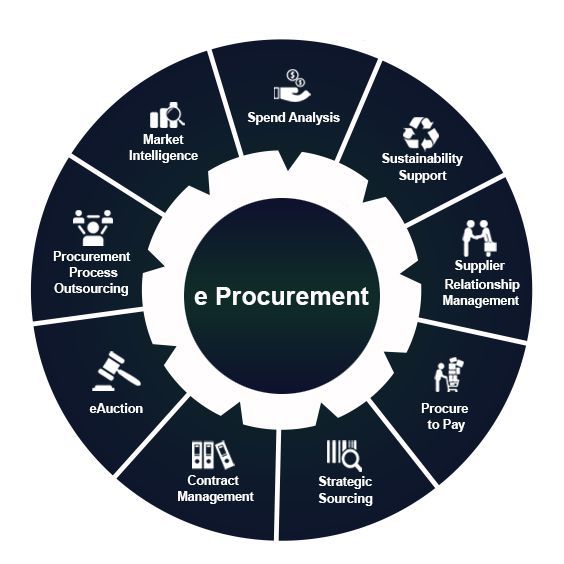The focus group research is an effective channel through which qualitative data can be sought, but it has implied confidentiality and privacy obligations to the participants. Obtaining open and honest responses also requires maintaining the trust of the participants. This guide will take us through what it takes to ensure confidentiality and privacy in focus group research such that anonymity is maintained not only for the participants but also for the process.
The Foundations of Confidentiality and Privacy:
Establishing Ethical Guidelines:
Familiarise yourself with ethical codes set in place by IRBs and research associations for focus group research before undertaking any of it. Such guidelines formulate basis for ethics and participant’s safety is essential in this process.
Defining Confidentiality and Privacy:
Specify the meaning of privacy and confidentiality for the parties as well. Confidentiality is the safeguarding of participant’s information against unauthorised use and privacy concerns, which extends to their right to determine what personal information is disclosed or not.
Gaining Informed Consent:
Ensure that you obtain informed consent from participants. Outline the main aims of the research, the reasons for collecting data, and what steps are taken to protect anonymity and confidentiality. It should be possible for participants to ask questions and give informed consent.
Key Considerations in Focus Group Research:
Participant Anonymity vs. Confidentiality:
Explain the distinction between participant confidentiality and anonymity. Anonymity means that not even the researcher can be able to identify the same individual who provided a certain response. However, confidentiality implies that even though such personal data are known to the researcher, he or she will maintain it in secret.
Data Storage Security:
Assess the safety of your data storage systems. Store all participant information securely either physically or digitally, making sure that it is encrypted and only accessible to authorised personnel.
Pseudonymization Techniques:
Consider employing pseudonymization in your focus group research. Where possible add an extra layer of privacy. If data is shared or analysed by several researchers replace participants’ real names with unique identifiers.
Secure Communication Channels:
When dealing with the participants, use safe communication channels, particularly for highly confidential information. Use encrypted emails or other secure messaging tools for recruitment, coordination, and further communications to protect participant information.
Best Practices for Ensuring Confidentiality and Privacy:
Transparency in Data Handling:
State clearly what will happen to the collected data. Include storage methods, access control, and third party participation. Transparency establishes trustworthiness and strengthens protection of participants’ confidentiality.
Secure Physical Spaces:
Ensure confidentiality during face-to-face focus groups by avoiding the leakage of participants’ information. Make sure this location is accessible to authorized personnel only, prevent eavesdropping and others.6
Participant Verification:
Implement participant verification measures. Establish the identities of participants at the time of recruitment and at the beginning of focus group sessions, to avoid the participation of imposters.
Confidentiality Agreements:
It is suggested that participants also be made to sign confidentiality agreements. This may not be essential in all study; however, can be helpful in research projects which encompass sensitive topics or when the subjects express their anxiety regarding confidentiality.
Challenges in Virtual Focus Groups:
Virtual Security Measures:
Choose the most secure platforms for online focus groups done via any video conferencing tool. Control access by using password protection, waiting rooms, and meeting links with security.
Recording and Storage Protocols:
Clearly describe procedures of recording and filing virtual focus group sessions. It needs to be explained to the participants on how they will use the recordings, for how long, who will access them, and so on. Ensure compliance with privacy regulations.
Technology Literacy:
Measure the technological literacy of participants in the virtual focus groups. Set out clear instructions and technical support for participants so they can engage enthusiastically, while knowing the privacy protocols that they have put in place.
Legal and Ethical Considerations:
Compliance with Data Protection Laws:
Familiarise yourselves with GDPR in the USA, HIPAA or other relevant data protection laws depending on your geographic setting. Make sure that your focus group research utilizing technology is in tandem with these legal frameworks.
IRB Approval:
Ensure that you have the necessary approval from your Institutional Review Board (IRB) before undertaking this kind of research. Therefore, getting IRB approval is a guarantee that your research plan adheres to ethics and satisfies the confidentiality and privacy concerns.
Building Trust and Communication:
Open Communication Channels:
Ensure you provide open communication channels with the participants. Ask them to raise any doubts regarding confidentiality and privacy issues, and respond to their questions during and after data collection.
Building a Trusting Environment:
Build a trusting environment.6 Ensure you state your commitment to maintaining confidentiality, stress the importance of a participant contribution, and show their privacy is paramount.
The Role of Researchers and Facilitators:
Training on Ethical Practices:
Make sure the process of training of the researchers and facilitators, who should be very experienced in matters of confidentiality and data protection. Such understanding should include the limits of technology and the highest standards for conduct of professionals.
Monitoring and Auditing:
Undertake regular monitoring and auditing to ensure compliance with confidentiality and privacy protocols. This way, problems which may be likely to interfere with the participant’s data are identified and rectified.
Conclusion:
In the context of the privacy and confidentiality in the field of the focus group research, it is not only the legal and ethical responsibility; it is the basis for the trust from the researched people to the researchers. Adopting the above discussed best practices, understanding legal requirements and creating a safe environment for open communication will ensure that the focus groups will not be afraid to share their experiences and insight. Balancing innovative technologies and ethics will become more relevant as technology keeps growing important in the research process.
Frequently Asked Question
1. How do I maintain confidentiality for a focus group research?
- Adopt pseudonymization, secure communication channels as well as transparent handling of data in order to guarantee confidentiality of participants.
2. What measures can be applied to safeguard participant privacy in a virtual focus group session?
- Ensure protection of participant privacy when using secure video conferencing software, and also recording and storing data collected from virtual sessions, while confirming participant identity is also necessary.
3. Why is transparency important in maintaining integrity and confidentiality in focus group research?
- Trust is built by revealing how the data is handled, stored, and any third party engagement while upholding participant confidentiality.
4. What legal considerations should take into account to provide confidentiality in focus group research?
- Ensure that you comply with data protection laws such as GDPR or HIPAA, and also get IRBs approval as a way of protecting the participants’ confidentiality.
5. What is the balance between innovative technologies and ethics in focus group research?
- Strong security, participant training, and communication forums to address privacy concerns can balance technology innovation and ethics in research practices.
















